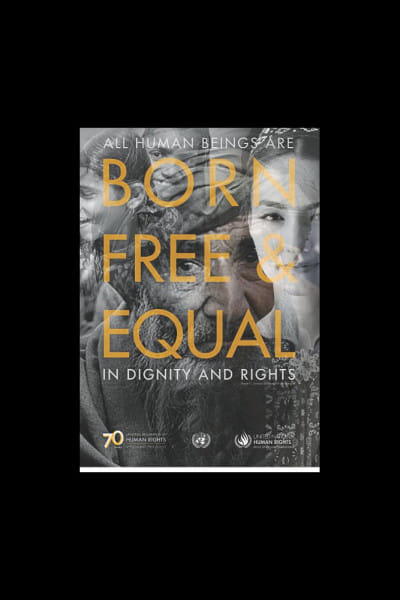CONSTITUTIONALLY RESPONSIVE

The nine-month long war of liberation was fought in 1971 to defend, among others, people's rights, liberty and freedom. One of the reasons for which Bangladesh declared itself as an independent State from the brutal oppression of West Pakistan was “to ensure for the people of Bangladesh equality, human dignity and social justice”. This is well-reflected in the historical text of the Proclamation of Independence which was adopted by the Mujibnagar Government in exile on 10th of April, 1971. As the historians show, the birth of Bangladesh is a result of colonial injustice and discrimination in all sectors, specially in the context of economic, political and cultural affairs. Many consider such historic injustice and discrimination, done by the Islamabad-based Pakistani government and now unquestionably well documented worldwide, motivated the Bengali population to fight against colonialism and bring forth freedom-equality-justice in the social, political and cultural landscape of Bangladesh.
Immediately after independence, Bangladesh adopted a Constitution in which the principles of human rights and justice were accommodated. Preamble announces that Bangladesh is committed to establish the rule of law and secure fundamental human rights, freedom, equality and justice for all citizens. Article 11 dreams of a democracy “in which fundamental human rights and freedoms and respect for the dignity and worth of the human person shall be guaranteed.” As we know the Supreme Court of Bangladesh, under Article 102 read with Article 44, is empowered to enforce civil and political rights within the ambit of fundamental rights. The constitution framers did not make socio-economic rights 'judicially enforceable' arguing that the country's economy is not matured enough for their implementation. After four decades of independence, this argument carries no value in the polity of Bangladesh, given the economic progress the counry has now. Despite their non-justiciability standing, socio-economic rights are constitutionally given the status of fundamental to the governance of Bangladesh, inspiration in making laws, guide to the interpretation of laws including the Constitution, and basis of the work of the State and of its citizens. As a whole, the constitutional fabric and framework absolutely proves that the makers of the Constitution were fully concerned about the protection and promotion of 'human rights' for the citizens.
As soon as the Constitution came into force, the implication of this constitutional vision started breeding fruitful meaning in the lives of many individuals, specially those who are poor, destitute, deprived, marginalised and rights-unconscious. With the emergence of Public Interest Litigation and legal aid mechanism, people are now enjoying their constitutionally guaranteed human rights. Nevertheless, we still see human rights violation and discrimination in various sectors. Women are being sexually harassed and incidents like gang rapes, trafficking and acid terrorism against women are being reported. Liberal and free thinkers are being killed and suddenly disappeared. Communal intolerance in the form of atrocities is often taking place against religious and cultural minorities. Dalit and transgender population are getting ostracised by State and non-State actors due to their identity construction. And what not? Year after year, many laws, policies and strategies are being made for protecting people's rights and freedom. But nothing is preventing all those injustices from happening and these are making the constitutional discourse on equality, justice and human dignity a futile exercise and charade.
Perhaps, we have derailed from understanding the historic significance and constitutional aspirations of our country. Genesis of Bangladesh is deeply rooted in our own history of struggle and movement for freedom and liberty. What our forefathers had once dreamt of is nothing but founding a country which would never forget its past memories of Pakistani oppression and remembering that this very country would step towards ensuring equality, justice and human dignity for all – irrespective of any identity, religion, age, gender or occupation. All our success stories of development, economic progress and technological advancement are must to fade away, if we do not take care of our constitutional promises. Taking positive vive from all good instances of people's empowerment, on the World Human Rights Day, let's stand up for equality, justice and human dignity in the spirit of country's constitutional pledges.
The writer is Lecturer in Law, Bangladesh University of Professionals (BUP).

 For all latest news, follow The Daily Star's Google News channel.
For all latest news, follow The Daily Star's Google News channel. 



Comments